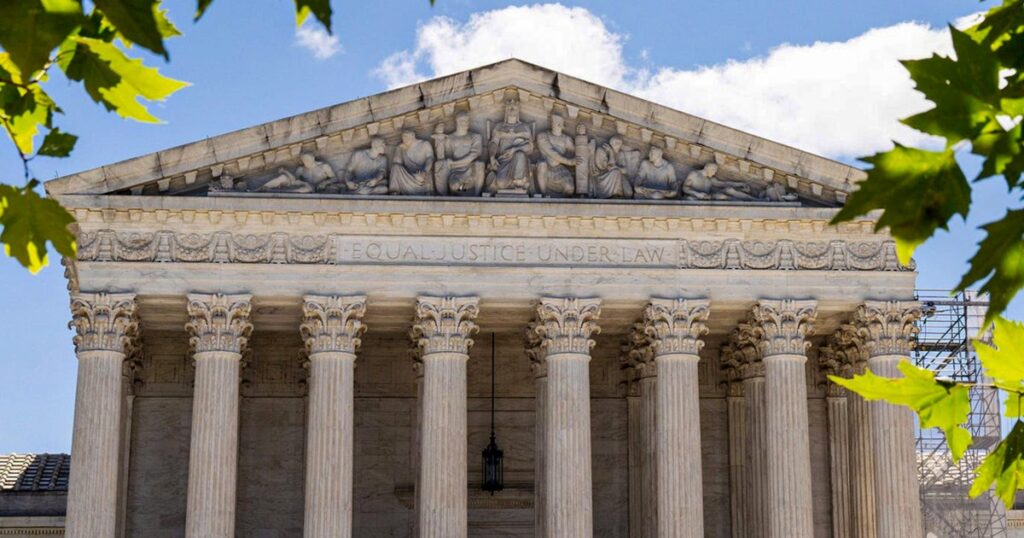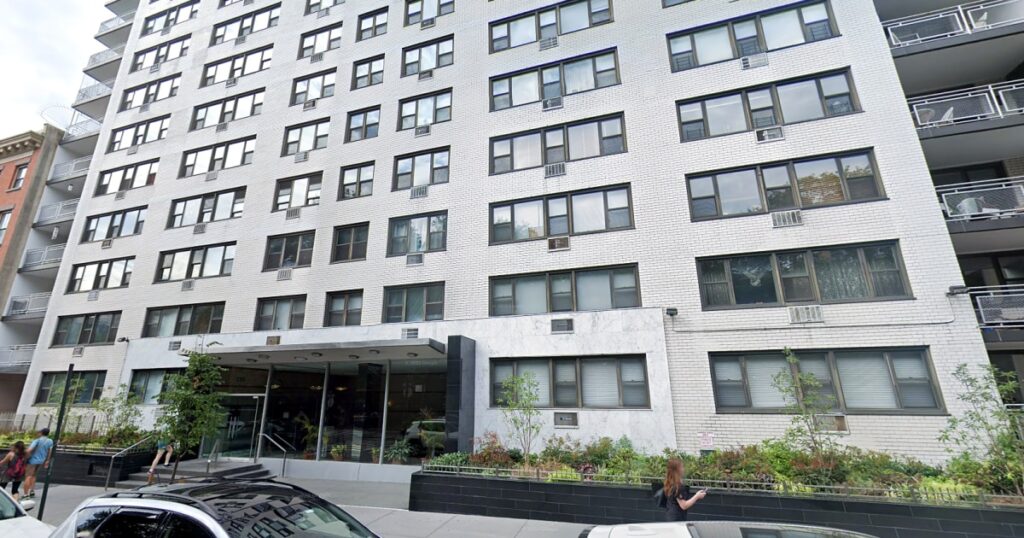By
The Supreme Court on Friday extended its block on the Trump administration’s ability to immediately deport a group of migrants in Texas under the Alien Enemies Act, in the court’s latest rejection of the administration’s extreme litigation stance.
The court had already blocked such deportations in a previous order and, in Friday’s ruling, said more notice before carrying out deportations is needed, sending the case back to the lower court for further litigation. The court did not decide the underlying legality of Trump’s use of the wartime act to carry out deportations.
The decision came over dissent from Justices Samuel Alito and Clarence Thomas.
In an unsigned opinion on Friday, the court said the government’s attempt to give only roughly 24 hours’ notice before removal, “devoid of information about how to exercise due process rights to contest that removal, surely does not pass muster.” The justices didn’t specify what exactly is required to satisfy the Constitution but rather sent the case back to a federal appeals court for further litigation on the issue.
“To be clear, we decide today only that the detainees are entitled to more notice than was given,” the court said.
“We recognize the significance of the Government’s national security interests as well as the necessity that such interests be pursued in a manner consistent with the Constitution. In light of the foregoing, lower courts should address AEA cases expeditiously,” the court said, referring to the act. Lower court judges around the country have mostly been ruling against the administration on the legality of Trump’s attempt to use the act.
Alito’s dissent, joined by Thomas, disputed the court’s jurisdiction and ability to grant class-wide relief here. “We do not find its reasoning persuasive,” the majority said of the dissent.
Friday’s ruling follows an unusual high court intervention just after midnight on Saturday, April 19, when the court issued an order halting certain deportations under the act that President Donald Trump invoked to send alleged Venezuelan gang members not only out of the country but to a notorious prison in El Salvador. The justices on April 7 had ordered the government to give detainees due process — specifically, notice and a chance to challenge their removal under the act.
The late-night order on April 19 came in response to an application from Venezuelan men detained in North Texas. They told the justices their lawless removal was imminent, “without notice or an opportunity to be heard, in direct contravention of this Court’s order.” Seeking an emergency injunction, they cited (among other things) the case of Kilmar Abrego Garcia, whom the government has resisted returning to the U.S. after illegally deporting him to El Salvador in March. “Emergency relief is necessary … in light of the government’s position that it need not return individuals, even those mistakenly removed,” they told the justices in the application filed by the American Civil Liberties Union.
“The public has a critical interest in preventing wrongful removals, especially where it could mean a lifetime sentence in a notorious foreign prison,” the ACLU lawyers wrote.
The court responded in that middle-of-the-night, one-paragraph order. “The Government is directed not to remove any member of the putative class of detainees from the United States until further order of this Court,” it said in part, over dissent from Alito and Thomas.
The court cited the Abrego Garcia case in Friday’s ruling, writing that the government “has represented elsewhere that it is unable to provide for the return of an individual deported in error to a prison in El Salvador … where it is alleged that detainees face indefinite detention.” The court added: “The detainees’ interests at stake are accordingly particularly weighty.”
The Alien Enemies Act says it applies when “there is a declared war between the United States and any foreign nation or government, or any invasion or predatory incursion is perpetrated, attempted, or threatened against the territory of the United States by any foreign nation or government.”
The 18th century act has only been used three times previously in U.S. history, all during declared wars. Trump’s March 15 proclamation invoking the act against alleged members of the Venezuelan gang Tren de Aragua said the gang “is perpetrating, attempting, and threatening an invasion or predatory incursion against the territory of the United States.”
A government memo released in May further undercut the factual basis for Trump’s invocation, because it showed that U.S. intelligence agencies don’t believe that the Venezuelan government controls the criminal gang Tren de Aragua.
Beyond the broader issue of the premise for these mass deportations under that particular legal authority, there are also questions about the methods the administration has used for determining who qualifies for deportation under the proclamation, further highlighting the importance of due process for individuals to be able to challenge their potential removal.
Subscribe to the Deadline: Legal Newsletter for expert analysis on the top legal stories of the week, including updates from the Supreme Court and developments in the Trump administration’s legal cases.




